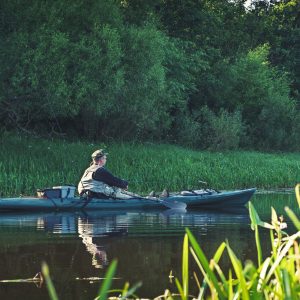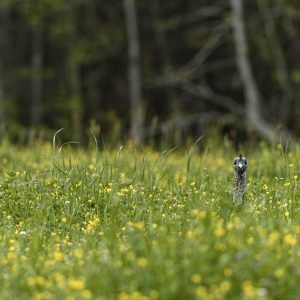Why Fall Is Best Time to Plant Trees
Generally speaking, the traditional planting time for folks in the South is February through mid-March, and folks up North have to wait for the ground to thaw in the spring. These still remain safe and reliable tree planting times. However, with the advent of containerized, air-pruned seedlings planting trees in the fall can be more productive in areas of the south where the ground doesn’t stay frozen. Here are a few advantages of planting in the fall.
 Establishing Faster Root Growth in The Fall
Establishing Faster Root Growth in The Fall
Planting trees in the fall allows the seedling several more months of root growth before spring green-up and the summer swelter hits. More roots in the ground ensures higher survival and better first year growth.
Fall Tree Planting Requires Less Watering
Planting trees in the fall will save hours upon hours of dreaded watering the following summer. Once again, the tree will have all winter and spring to get used to its surroundings and put down roots. When the summer heat wave hits, a fall planted seedling can, in most climates, make it through the season without supplemental watering.
More Time In The Spring
Fall tree planting allows more time the following spring to handle other important tree projects such as fertilization, and weed and insect control.
If you are serious about fast growth, lower maintenance, and early and abundant fruit/seed production, give fall tree planting a try. You’ll be glad you did!
How to Plant Trees In the Fall
Various mast producing trees such as oaks and fruit trees are a great way to provide additional food to the wildlife on your property in key areas. Keep these tips in mind to ensure success.
Choosing the Best Planting Location
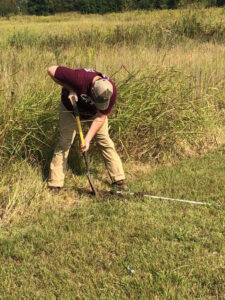 There is a reason farmer’s plant their crops in specific areas. Trees also grow faster and thrive in areas they prefer. When given a choice between planting a tree atop a rocky hilltop or down in a valley or bottom, generally the area that’s lower in elevation will have better growing conditions. A simple way to determine a suitable location is to look around your immediate area at the vegetation that already exists- if you see one particular spot that has taller or greener vegetation, plant your tree there.
There is a reason farmer’s plant their crops in specific areas. Trees also grow faster and thrive in areas they prefer. When given a choice between planting a tree atop a rocky hilltop or down in a valley or bottom, generally the area that’s lower in elevation will have better growing conditions. A simple way to determine a suitable location is to look around your immediate area at the vegetation that already exists- if you see one particular spot that has taller or greener vegetation, plant your tree there.
Prepare the Planting Site
Nobody has much success transplanting tomato and other vegetable starts directly into their backyard without first preparing a proper bed. If you want success with tree plantings you must first spend the extra time preparing each individual planting hole prior to the day your tree seedlings come in the mail. Simply flag or mark each location, terminate the weeds, then dig and backfill the hole. When you come back to plant the tree its roots will now have a nice bed to grow in.
Protect Your Investment
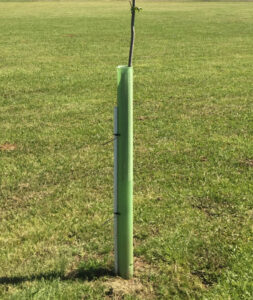 Why spend time and money on preparation, seedlings, and planting day to come back weeks later and find your tree has been eaten by deer or your cousin ran over them with the tractor. Tree tubes (a.k.a tree protectors) protect newly planted seedlings from all sorts of damaging agents AND increase growth rates. Tree protection is a no-brainer.
Why spend time and money on preparation, seedlings, and planting day to come back weeks later and find your tree has been eaten by deer or your cousin ran over them with the tractor. Tree tubes (a.k.a tree protectors) protect newly planted seedlings from all sorts of damaging agents AND increase growth rates. Tree protection is a no-brainer.
Plant Reasonable
Unless you are going big and reforesting large acreage, consider planting no more trees than you have time to individually visit at least 2-3 times per growing season for the first three years. For the guy who lives ten minutes down the road from their property, that may be as many as 400-500 trees. If whatever reason you may not have as much spare time to intensively manage your planted trees, 20 trees a year may be your lucky number. The point is, all of the seedlings you plant deserve to be intensively managed so they’ll quickly become well on their way to heavy crops for you and your wildlife.
For help choosing the right trees for your property visit nativnurseries.com. The staff at Nativ Nurseries can walk you through the different species offered and the many benefits each can bring to your piece of property.

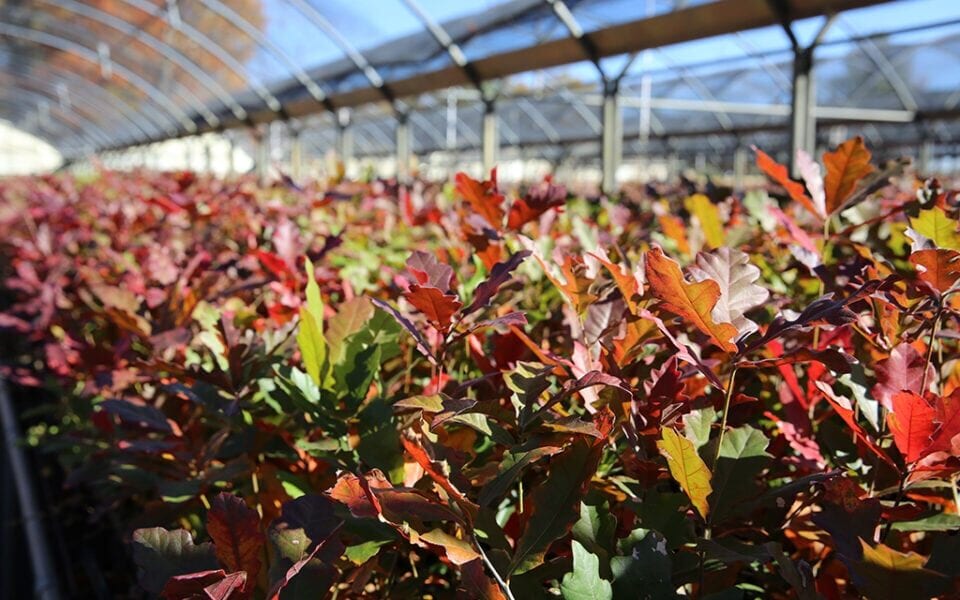
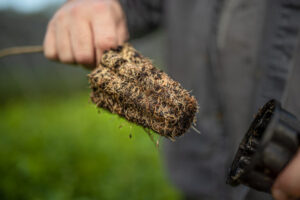 Establishing Faster Root Growth in The Fall
Establishing Faster Root Growth in The Fall